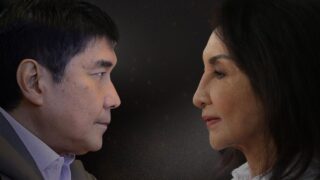The Department of Energy is creating a comprehensive energy master plan for the next decade and a half that—if formulated and implemented properly—will help deliver reliable and affordable electricity to sustain local economic growth.
The department’s Energy Policy and Planning Bureau is finalizing the Philippine Energy Plan 2016-2030 as the energy sector’s contribution to the Ambisyon Natin 2040, as outlined under President Duterte’s Executive Order 5, laying down the foundation for inclusive growth and a high-trust society.
In a statement, Energy Secretary Alfonso Cusi said the DOE was crafting a 15-year energy plan—and even a plan that extends to 2040—that would entail a series of studies factoring in gross domestic product (GDP) and population growth, among others.
According to the energy department, these sectoral roadmaps were a result of the review exercises done on the effectiveness of the current agenda and the identification of implementation gaps in the program. Each of the roadmaps is complemented by programs of action, which are broken down into short-, medium- and long-term targets guided by its overall objectives by 2030.
“The Philippine Energy Plan formulation paved the way for the development of sectoral energy roadmaps that are critical to ensure energy security and increased energy access,” Cusi said. “We have conducted a series of consultations with various stakeholders—local government units, electric cooperatives, nongovernment organizations, civil society organizations, academe, RE developers, oil industry players, generation companies, chamber of commerce and industries, financial institutions and development partners—to present the plan and generate inputs for its enhancement.”
Over the past two months, the energy department conducted consultative meetings with sectoral stakeholders in the cities of Cagayan de Oro, Legaspi, Iloilo, Davao, Cebu, and finally last week in Metro Manila.
The department issues raised in the plenary discussion during the consultations included initiatives on low carbon future (specifically, the lowering of greenhouse gas emissions), oil deregulation, electricity pricing, rural electrification, renewable energy development and its policy mechanisms, measures on energy efficiency and conservation, and other local energy concerns.
“Planning our country’s energy roadmap safeguards our Filipino consumers and our industry participants from any undesirable energy scenarios in the future. It is our job to protect them,” Cusi explained.
“Once the plan is finished, it will greatly contribute to the expansion of the country’s economic prospects through the provision of employment opportunities and generation of investments,” he added.



